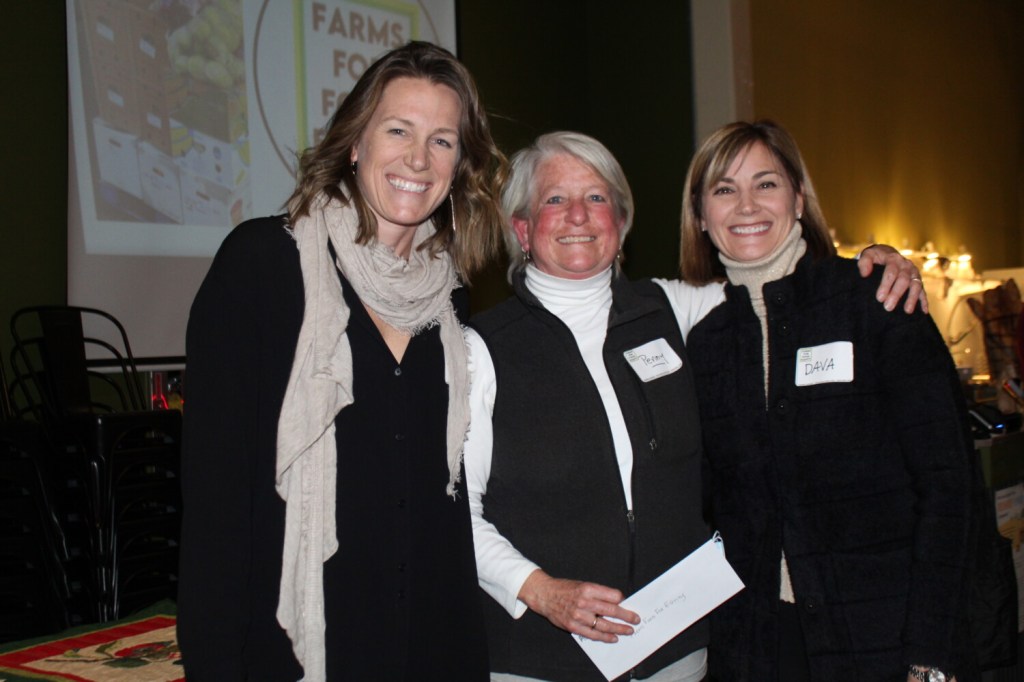Penny Jordan’s farm store in Cape Elizabeth may be small, but her dreams are big: Ending hunger, growing the agricultural economy of southern Maine and reducing food waste.
And she is proof that big things can start small.
The first fundraiser for Farms for Food Equity was just a few dozen people at Rosemont Market & Wine Bar at Thompson’s Point on Dec. 9 with a silent auction made up almost entirely of items that Jordan’s friends made by hand. And yet the event raised nearly $4,000, not even counting a $7,500 check presented by Taylor McFarlane and Dava Davin of Portside Real Estate.
“This is so awesome,” said Jordan, who founded Farms for Food Equity early in the pandemic. “I get teary about this stuff.”
The nonprofit buys excess produce from farms at a discount and moves it into the charitable food system through partners Wayside Food Program, Food Cupboard, Preble Street Resource Center, Locker Project, Root Cellar, Catholic Charities and FarmDrop.
Board member Theresa Olesksiw, who is known for sharing recipes for less familiar produce like parsnips, said, “It is about getting fresh vegetables into food pantries.”
But, with help from the Sewall Foundation and the Phineas W. Sprague Memorial Foundation, it has also been about making sure that farms get paid for their labor.
“We started with the idea of gleaning,” said Bill Seretta of Fork Food Lab. “But if that’s the only way you get healthy food to people who need it, that’s just a Band-Aid. We need to get the farms paid something.”
In its first growing season, Farms for Food Equity has sent more than $50,000 back to its farm partners.
“Local farms are so important,” said board member Steve Culver. “What better way to support them than by getting food to the people who need it? There’s synergy. We’re not asking the farmers to take a hit but making their contribution economically viable.”
Don Morrison, operations manager for Wayside, says that Jordan’s Farm had donated excess produce for years but that the nonprofit model changed the regularity and quantity.
“This summer we started picking up at Jordan’s Farm on a weekly basis, and it’s a huge amount of food, sometimes 8,000 to 10,000 pounds of food,” Morrison said. “We bring it back to our warehouse and redistribute it to about 60 agencies throughout Cumberland County and some into York and Oxford counties. And we were able to increase the amount of fresh produce available to our partner agencies.”
Amy Paradysz is a freelance writer and photographer based in Scarborough. She can be reached at amyparadysz@gmail.com.
Send questions/comments to the editors.









Comments are no longer available on this story